Writer and former showrunner Steven Moffat has dominated the 60th anniversary poll in Doctor Who Magazine to find the most popular episode of all time. But which adventures made the cut?
Yay for Team Capaldi. Peter and I are thrilled. Peter says he smiled but I don't believe him. In gratitude, we're making a new series with our action figures. We're in talks with Rachel T but she's too expensive after Star Beast. Sadly, Brian M has been poached by my wife. pic.twitter.com/gDMZVaIavv
— StevenWmoff (@SWmoff) November 8, 2023
10) Silence in the Library / Forest of the Dead
This two part Steven Moffat story from 2008 acted as something of a precursor to Moffat’s reign as showrunner. In the story, the Tenth Doctor and Donna Noble encounter the mysterious Professor River Song who, it transpires, is a person from the Doctor’s future. She even has a version of his sonic screwdriver and describes a number of intriguing future events, some of which are documented in her TARDIS-shaped diary. Even more staggering, she seems to know the Doctor’s name.
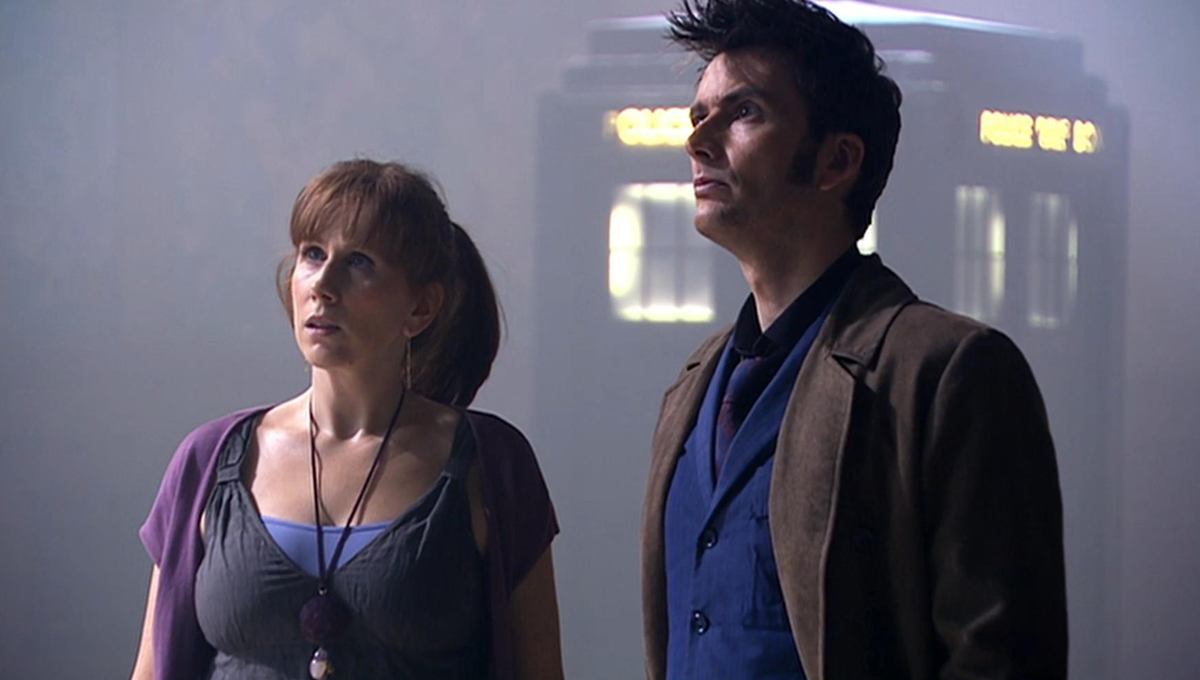
Of course, this Steven Moffat adventure isn’t all about River Song. The story is actually set on a planet-sized library which has been invaded by deadly flesh-eating shadows known as the Vashta Nerada and, naturally, it’s up to the Doctor to defeat them.
And whilst every good Doctor Who story needs a catchphrase, ‘Silence in the Library’ and ‘Forest of the Dead’ go one better and give us two: the now-infamous “Donna Noble has left the library, Donna Noble has been saved” and “hey, who turned out the lights?” Believe it or not, these lines of dialogue are extremely chilling, in context.
6) Blink
This 2007 Steven Moffat episode became an instant classic when it was broadcast midway through Series Three. It was one of Doctor Who‘s famous ‘Doctor-lite’ bottle episodes – a cheaper production with minimal involvement from the Doctor or his companion, allowing the team to shoot multiple episodes simultaneously.
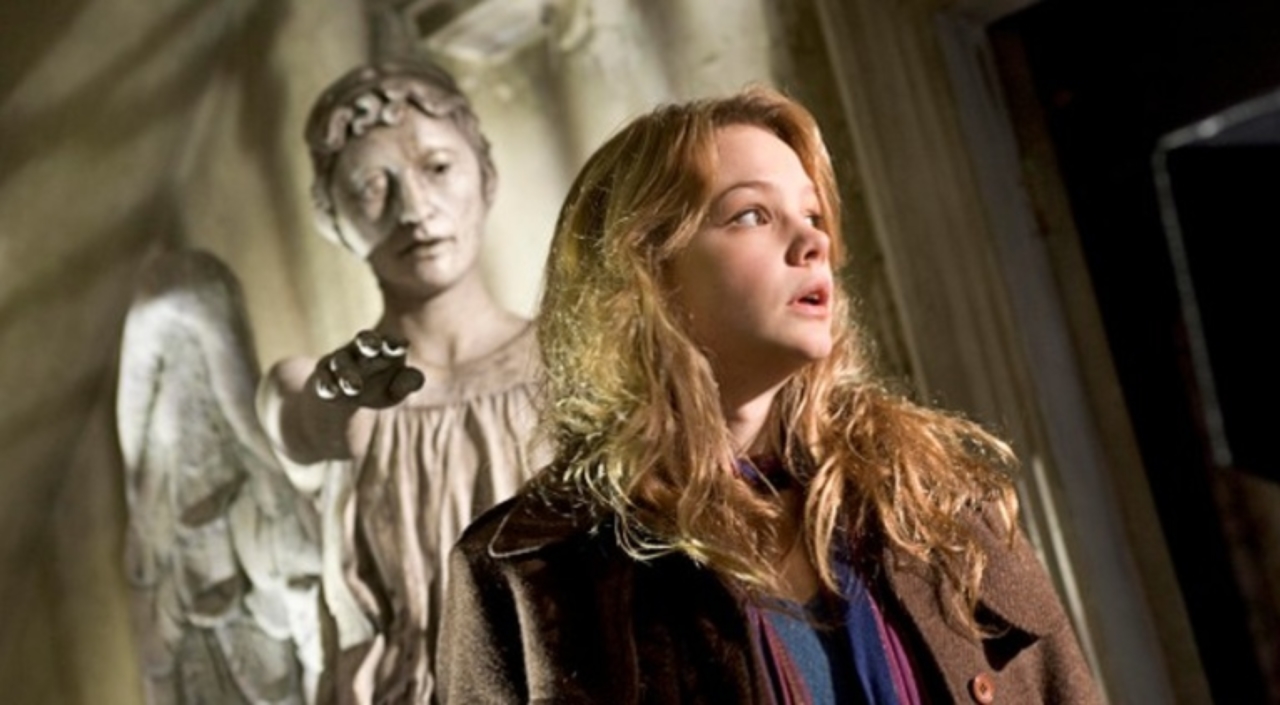
And despite the fact that the Tenth Doctor and Martha are (somewhat) side-lined in this story, the fact that it has gone on to be one of the fans’ all-time favourites is all-the-more impressive. And in many ways, it shows Steven Moffat at his timey-wimey best; it’s a mind-bending tale of cause and effect where nothing quite happens in the right order, but it all comes together beautifully.
But ‘Blink’ is most famous for introducing the Weeping Angels – a Doctor Who monster which (arguably) has become as popular and as recognisable as the Daleks and the Cybermen. These so-called Lonely Assassins never speak, and can only move when they’re not being observed. Should they catch a person, they won’t kill them. Well, not exactly. They’ll send them back in time, and feed off the energy of their stolen years.
5) The Day of the Doctor
Another instant hit for Steven Moffat was the 50th anniversary special ‘The Day of the Doctor,’ which pitted the Tenth and Eleventh Doctors against the Zygons and – by extension – the Daleks, who were firing on Gallifrey in the heart of the Time War. Interestingly, Steven Moffat introduced a new incarnation of the Doctor for this adventure – the War Doctor, played by John Hurt, who slotted between the Eighth and Ninth incarnations.
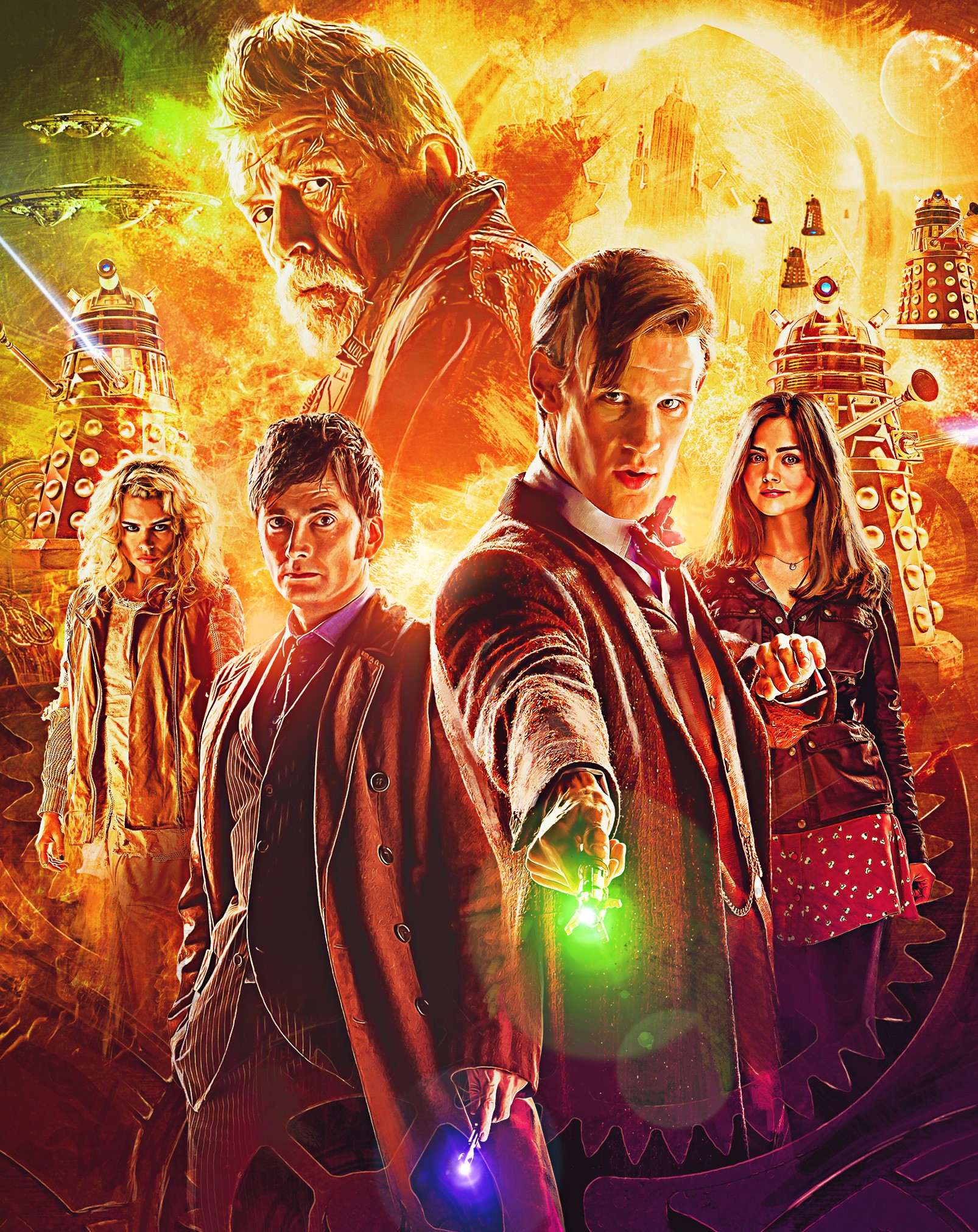
And at one point, it looked as if the 50th anniversary special wouldn’t even happen at all. Or, at least, it could have been Doctor-less. Matt Smith hadn’t actually signed a contract to appear in it, and Steven Moffat was frantically trying to put a story together that celebrated all that was great about the Doctor… without the Doctor. An early version of the story centred on Clara Oswald meeting people who were impersonating the famous Time Lord.
But as we all know, the episode came together in the end, even if it was speedily written. It even managed to introduce yet another incarnation of the Doctor in the shape of the Curator, played by Tom Baker.
2) World Enough and Time / The Doctor Falls
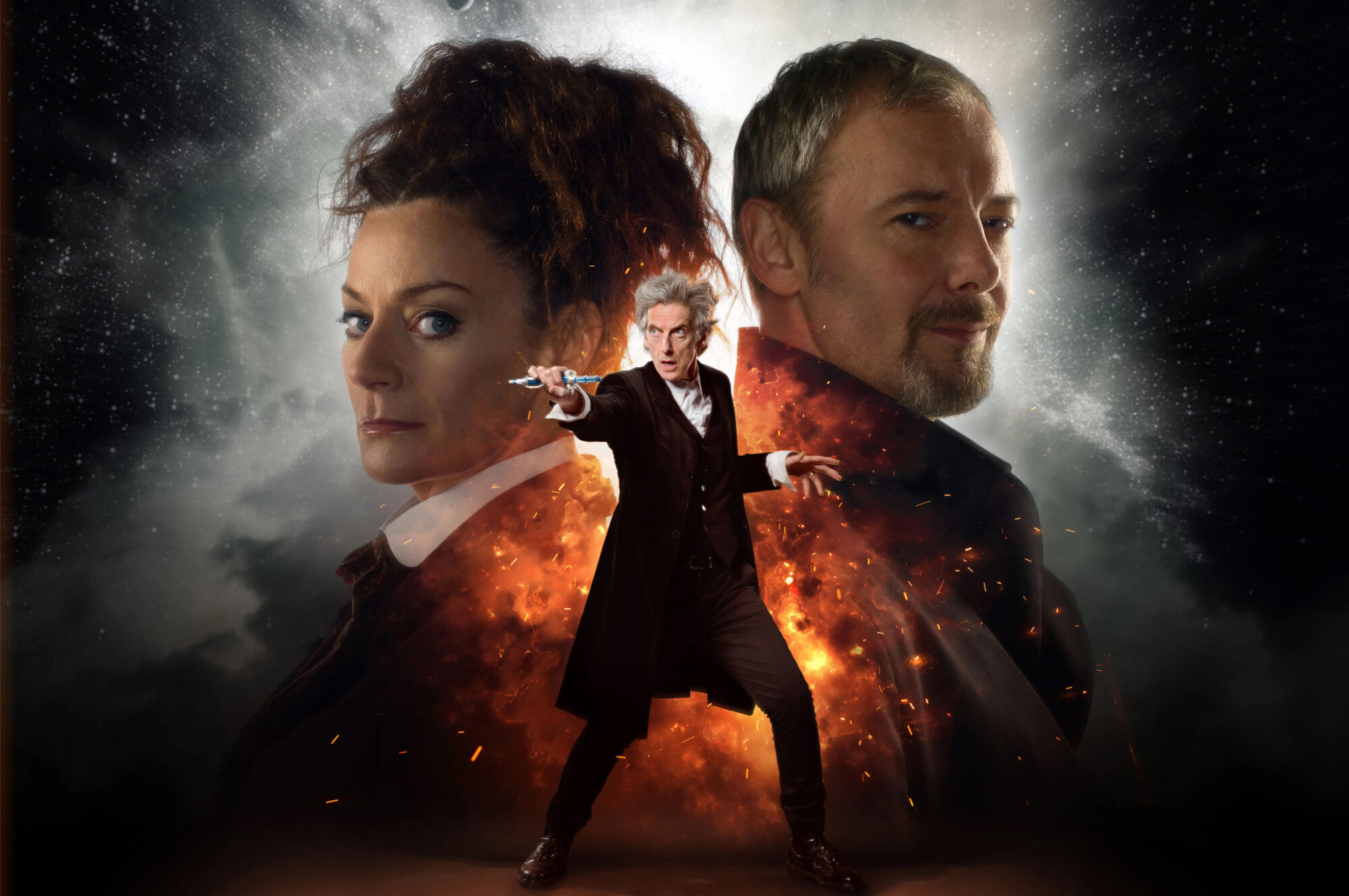
This two part story came at the end of Peter Capaldi’s final season in 2017. The Twelfth Doctor found himself battling two versions of the Master, and multiple versions of the Cybermen, on a gargantuan vessel that was pulling away from a black hole. And like all good Steven Moffat yarns, this one dealt with the complexities of time, as the title suggests – although this is also a subtle nod to the poem ‘To His Coy Mistress’ by Andrew Marvell. The Mistress, of course, refers to the female version of the Master who appears in this story.
It’s also worth noting that this epic adventure was one of Steven Moffat’s last. He would pen just one story after this – the 2017 Christmas special ‘Twice Upon a Time,’ in which the Twelfth Doctor would regenerate. So there’s a lot of high-stakes drama in this two-parter, and Steven Moffat certainly gives it his all. Indeed, the very first scene sees the Twelfth Doctor collapsing outside the TARDIS and starting to regenerate.
And if your mind is not yet fried enough, ‘World Enough and Time’ and ‘The Doctor Falls’ also saw the return of the Mondasian Cybermen, who hadn’t been seen since the 1966 adventure ‘The Tenth Planet.’ Plus John Simm. This really was a season finale for the fans.
1) Heaven Sent
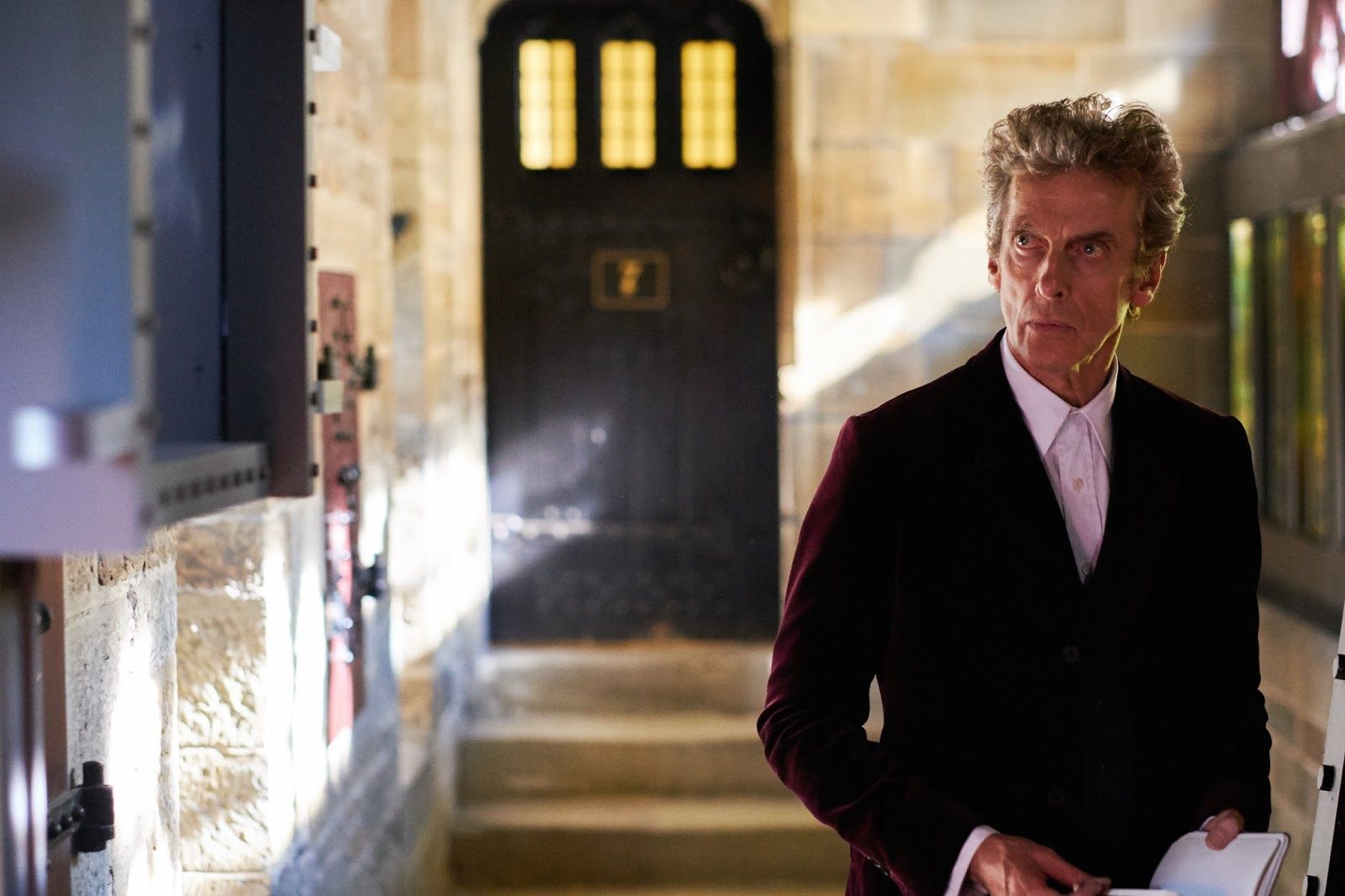
The 2015 story ‘Heaven Sent’ garnered much attention even before it aired. It had been teased as a ‘one-hander’; viewers knew that there was only one actor (predominantly) in ‘Heaven Sent,’ and that actor was Peter Capaldi. So for all fifty minutes of this classic episode, the Twelfth Doctor is almost the only person who speaks, save for a brief line of dialogue from Clara Oswald.
It really is astonishing to think that a single actor can carry such a thrilling story, and even more astonishing to think that a writer can pen something so masterful with just one character and a single location. In ‘Heaven Sent,’ the Doctor finds himself trapped in a mysterious castle with shifting walls, and he’s being stalked by an ominous creature known as the Veil. The Doctor knows that he has to find Room 12, and when he does… well, that’s the clever bit.
In short, there really is no other Doctor Who episode like ‘Heaven Sent,’ and its place at the top of the magazine’s poll is well-deserved. And remarkably, Steven Moffat has usurped the staunch fan favourite ‘Genesis of the Daleks,’ which now ranks at number three, and ‘City of Death‘ now sits at number eight. For the full lowdown on the 60th anniversary poll, be sure to pick up your own copy of Doctor Who Magazine, which is in shops now.
In the meantime, how do you feel about these episode rankings? And which is your all-time favourite Steven Moffat episode? Let us know in the comments below.








Leave a Reply